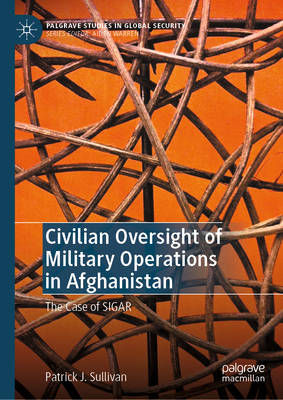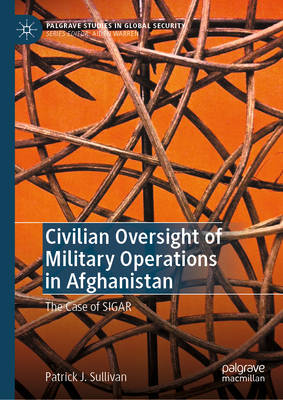
- Afhalen na 1 uur in een winkel met voorraad
- Gratis thuislevering in België vanaf € 30
- Ruim aanbod met 7 miljoen producten
- Afhalen na 1 uur in een winkel met voorraad
- Gratis thuislevering in België vanaf € 30
- Ruim aanbod met 7 miljoen producten
Zoeken
€ 160,45
+ 320 punten
Omschrijving
This book assesses the oversight regime in Afghanistan to identify and characterize the oversight failures, and then links them to specific negative strategic outcomes. Although there are high-quality analyses available about what went wrong in Afghanistan and why, few of them are grounded in scholarly research that uses empirical methods. This book fills that epistemological gap as well as provides a unique contribution to the body of literature, which does not contain any comprehensive studies of Afghanistan oversight. This type of study is important because certain characterizations of an oversight failure--e.g., Congress knowing that things were going badly in Afghanistan but choosing not to do anything about it--point to several pathologies about political control of the military and the incentive structures contained therein. Understanding and proactively managing these pathologies will be critical to improving strategic outcomes in future complex military interventions of the Afghanistan type.
Specificaties
Betrokkenen
- Auteur(s):
- Uitgeverij:
Inhoud
- Aantal bladzijden:
- 339
- Taal:
- Engels
- Reeks:
Eigenschappen
- Productcode (EAN):
- 9783031983221
- Verschijningsdatum:
- 19/10/2025
- Uitvoering:
- Hardcover
- Formaat:
- Genaaid
- Afmetingen:
- 148 mm x 210 mm
- Gewicht:
- 580 g

Alleen bij Standaard Boekhandel
+ 320 punten op je klantenkaart van Standaard Boekhandel
Beoordelingen
We publiceren alleen reviews die voldoen aan de voorwaarden voor reviews. Bekijk onze voorwaarden voor reviews.







